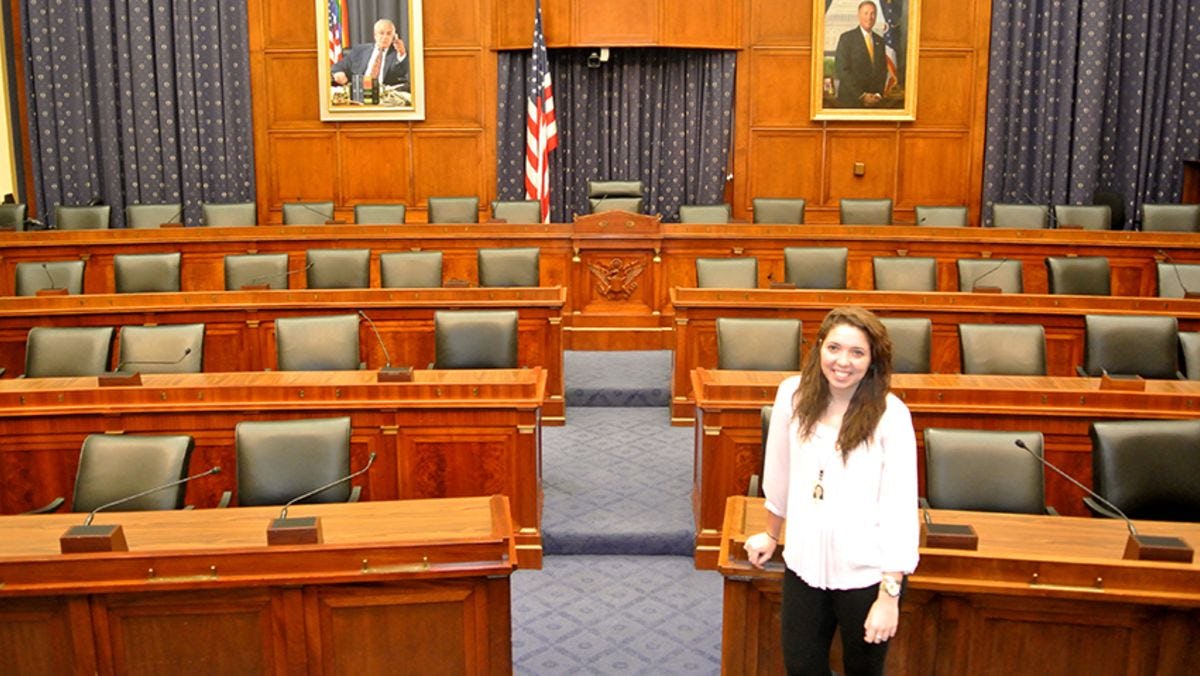When Tech Talk is Taxing to Her Clients, Alumna Shows Strategic Value of Digital Transformation
Cochran '15 Leans on Business, Finance, Programming Skills in Becoming a Standout at EY
When EY opened its Hoboken, NJ, office, it was a commuting dream come true for Carolyn Cochran ’15, who lived a short walk from the new location.
The bad news? Most days, rather than a trip along bustling Washington Street to EY’s new office, she was on her way to the airport for a visit with important clients around the country.
Such is the life of a consultant who brings a set of technology and finance skills to the table. And Cochran’s services are in particularly high demand, thanks to the unique blend of business, finance and computer science skills she cultivated in the Quantitative Finance program at the School of Business of Stevens Institute of Technology.
“The QF program was just so different from everything else that was out there,” Cochran said. “I didn’t even realize until I left school just how well the classes prepare you to be a success at work.”
An expert in digital transformation
Today, Cochran is a senior consultant in EY’s financial services office, where she works with the taxes tech and transformation team. She works directly with clients and internal technologists to identify solutions and process improvements that help clients find value in an age of tech-borne disruption.
While many graduates of the QF program work in more finance-intensive roles, the tech perspective she received at Stevens helps Cochran with her favorite part of the job — transformation. More and more companies are looking to technology to change their core business processes in search of competitive advantage; Cochran learns all she can about how a client does business, then leads discussions with EY’s technology teams in creating platforms and solutions that position the client for success.
“At the end of the day, why implement some new technology that costs money, takes time for your teams to learn and can be extremely frustrating?” Cochran said. “If we’re only focused on the technology aspect, clients can get caught up in these problems and not see the value. When we focus on transformation, it's much more of a process of identifying where the client wants to go, then figuring out the best way to get them there.”
Stevens, she said, is where she developed a practical, business-oriented approach to the use of technology in helping clients solve these kinds of complex problems.
“It’s important to make sure we fully understand the client’s underlying processes and identify any inefficiencies — technology or not. That way, we aren’t creating a tool that automates a broken process,” she said. “Technology alone may help patch a short-term, isolated problem, but with a transformation mindset, you can make the longer-term changes that address a client’s overall growth strategy.”
Cochran’s first brush with Stevens came in high school, when she attended a pre-college engineering program as a Villa Walsh Academy student. Her parents are both electrical engineers and her mother, Carol Cochran ’83, is a Stevens alumnus, so it’s no surprise Cochran gravitated toward a STEM institution.
Now five years into her career, when Cochran reflects on Stevens, it’s not specific skills that come to mind, but rather, an ability to think critically about the abilities — and limitations — of technology in solving problems and identifying opportunities.
“A lot of times, you have people who are good at building one kind of tool, or using one kind of language, and so you bring them into a problem and they only see one solution,” she said. “What I have from Stevens, from being taught different ways of looking at things, is an ability to ask whether we should be doing something differently. And that's a really valuable perspective to have.”
Capitol calling
One example of learning to look at things differently came through a unique opportunity where Cochran spent a semester at Georgetown University, learning about financial regulation while interning with the House Committee on Financial Services. Dr. George Calhoun, director of the Quantitative Finance program, said Cochran laid the foundation to hopefully strengthen Stevens’ partnership with Georgetown.
“Regulation is a huge piece of the finance industry, but that’s never going to be our strength,” Dr. Calhoun said. “The idea of working with Georgetown and showing our students that side of the business was a good idea — but it doesn’t work without the right person who will go out there and create herself an opportunity while representing Stevens in the best way possible. Carolyn crystallized this idea in a way few other students could.”
Cochran called the experience valuable, though her future seems unlikely to return to regulation. In fact, she said she feels lucky to work with the teams and clients she’s assigned to — not to mention that she travels less frequently, simplifying her commute.
“One thing I really appreciate about EY is if you work above your level, you will be treated like you belong at that next level,” she said. “I go into meetings where I am treated as a manager, as opposed to a senior. I really do feel appreciated, and it gives you perspective on what’s required if you do want to advance into a leadership role.”
Digital transformation at Stevens Quantitative Finance degree School of Business



